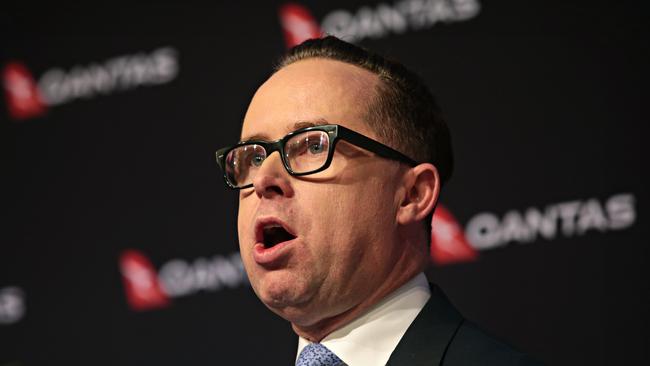
It was a lesson demonstrated on Wednesday by Dig Howitt at Cochlear and Alan Joyce at Qantas.
The former raised $800 million through a JP Morgan underwritten placement at a 17 per cent discount to market, and marks the first equity raising by the corporate superstar since it floated in 1995.
Cochlear was trading at $251.55 a share back in mid-February, $216.11 a share on March 13 and today issued 5.7 million new shares at $140 a share.
Wednesday was an up day on the ASX, with the market trading up over 3 per cent in lunchtime trade, irroring the increase on Tuesday on the back of the booming US stock market.
Qantas raised $1 billion in debt to bring its total debt at $5 billion with the new 10-year money at an extraordinarily low 2.75 per cent.
The airline has a real problem short term, with precious little in revenue thanks to government shutdowns around the world, which may make it difficult to raise equity no matter how good its reputation.
While JP Morgan has covered its books with the Cochlear issue it did report some difficulties because some funds are preserving cash in the face of potential redemptions.
Treasurer Josh Frydenberg added to the burden by opening the books of superannuation funds to up to $20,000 per member. Collectively, if all members took up the opportunity, it would reduce the balance at AustralianSuper by over $42 billion, or 25 per cent of its assets under management.
Worse still the hurdle to get access to the funds is not large.
Now it should be noted the $42 billion figure exaggerates the potential withdrawal at AustralianSuper because some of its 2.2 million members don’t have $20,000 in their account and those who can afford it won’t withdraw anything, because it will cost them at least four times that amount when they retire.
But it highlights the issue.
Back in 2009 Australian corporates raised $98.9 billion in funds in a boon to the investment banking industry, which netted $1.9 billion in fees.
JP Morgan collected $20 million on the Cochlear issue.
The issue facing Cochlear is that elective surgery around the world is on hold, which means less people are installing hearing devices.
But the company noted that since controls were lifted in China demand is up 60 per cent so the issue is more a delay than a cancellation, which should mean sales bounce back later in the year.
Other companies are not so fortunate.
Try to run a cruise ship company today and see how demand is running.
The ASX is talking to customers about delaying the introduction of its blockchain-based clearing system, which was to be unveiled in April next year.
The monopoly will continue with its trial run in July but rightly figured market participants have other issues on their plate today, so a delay makes sense.




The lesson from the GFC was that if you are going to raise money, do it quickly.